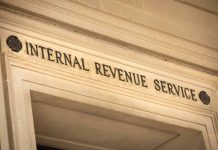
Ever want to just quit your job and be your boss? Though it may sound like fun, being self-employed does have its share of headaches. That hasn’t stopped people from pursuing self-employment at all! The expanding gig economy shows no signs of failing anytime soon. As a matter of fact, 36% of the US labor force takes part in the gig economy in one way or another, according to the finding of the 2018 Gallup poll. The extraordinary growth rate of the gig economy can be credited to the fact that it gives Americans the opportunity to have less dependence on traditional full-time jobs, more income diversity, and more ways to develop themselves. There is yet one small inconvenience that they have to face: income from side gigs can be taxed. We’ll show you all the basics of handling your taxes.
Tax Deductions for the Self-Employed/Business Owners
It’s important to note that even though your income is taxable if you’re self-employed or have your own business, you are entitled by law to tax deductions and other advantages that traditional full-time employees won’t necessarily get. The details of these deductions you will be able to find on the IRS website.
Running a Home Office
You’ll be surprised to learn how many tax deductions you can actually get if you have your own home office. According to Section 179 of IRS rules, home office expenses are tax-deductible, including electronic devices for business use (such as cell phones and laptops), printers, and other types of stationery supplies. Tax deductibles can also be applied to expenses related to marketing and promotional materials or even business travel. It’s important to consult the IRS to make sure you save every cent you can.
Important Tips:
- Organize all your receipts in a file that is easy to follow.
- Do not use tax deductions for personal use. For example, don’t try to take a vacation to sunny Florida to sunbathe. It has to be evident that this is a business trip.
- If you’re in contact with an experienced CPA, consult him/her about what other deductions you might be entitled to. Everyone’s situation is different and you may need individual attention.
You Must File Quarterly Taxes On Your Own
Whenever you’re in a traditional job, your employer will take the estimated taxes from your salary and send them to the IRS for you regularly throughout the year. As a person who is self-employed, you’ll have to do this all on your own. If you do not do this, you might face a tough penalty or a fine!
Those Who You Have Paid Are Required to File 1099 Forms
If anyone offered you a business-related service while you were working and you paid them for it, they will have to file a 1099 form as long as they are not working as an employee under you. Professional accountants will be able to do this for you if you wish.
Though you may think that all you have to do is download and have it mailed, the process is actually not that simple. You actually have to purchase original hard copy IRS 1099 forms. Then it can be sent to those who receive payments from you for their services. You will also send another copy to the IRS. In both cases, they can be sent electronically. Most importantly, the deadline for filing the forms is January 31st and you could potentially be forced to pay fines for not filing them.




























